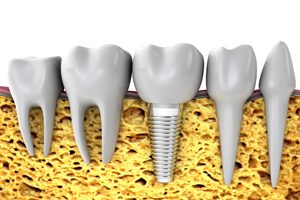 Some prescribed drugs and dental surgery may not be a good mix.
Some prescribed drugs and dental surgery may not be a good mix.
You might not think that what your MD prescribes—and what your dentist does for your mouth’s well-being—are closely related. But both are significant.
If you are contemplating upcoming dentistry like a tooth extraction or an implant, it may be helpful to review which prescribed drugs you are taking for other problems.
Two red flags, here: prescription drugs for osteoporosis and certain drugs used in association with chemotherapy against cancers.
The big word is bisphosphonates. That means a drug used in treating bone disease. They limit activity in bone cells which remove old or injured bone. Good, if the problem is bone thinning or cancer. But they might also limit the re-growth of bone tissue after tooth extraction or dental implant surgery.
In a study of patient charts from Long Island Jewish Medical Center and the University of Maryland, a striking parallel was noted. Patients who were admitted with some sort of oral surgery, and patients who exhibited some sort of non-healing lesion in the jaw, all seemed to have one thing in common: a history of bisphosphonate therapy. In English, that means they were receiving either a drug to counter bone loss or were undergoing chemotherapy.
The good news is that the potential for osteonecrosis (bone death) following some sort of oral surgery is rare. What’s important is to make sure your MD’s prescriptions and your dentist’s plans are compared and on-track!
Common Bisphosphonates
For osteoporosis:
- Fosamax
- Actonel
- Boniva
In IV chemotherapy:
- Aredia
- Bondranot
- Benefox
- Loron
- Zometa




Comments are closed.